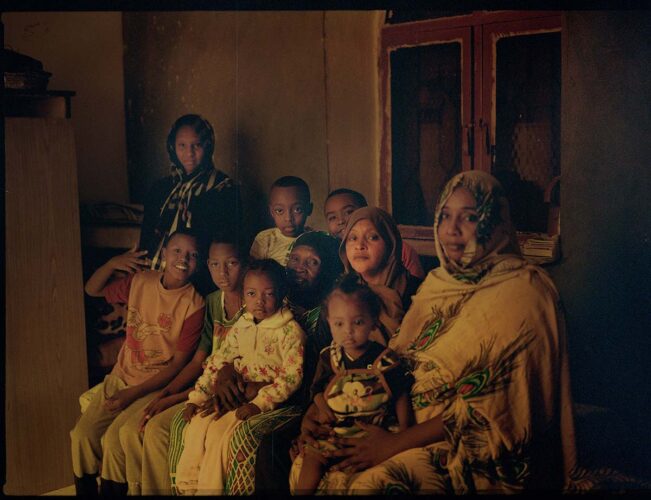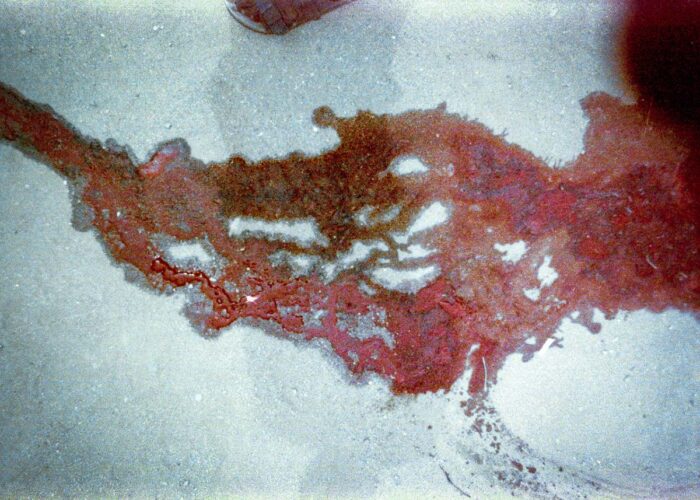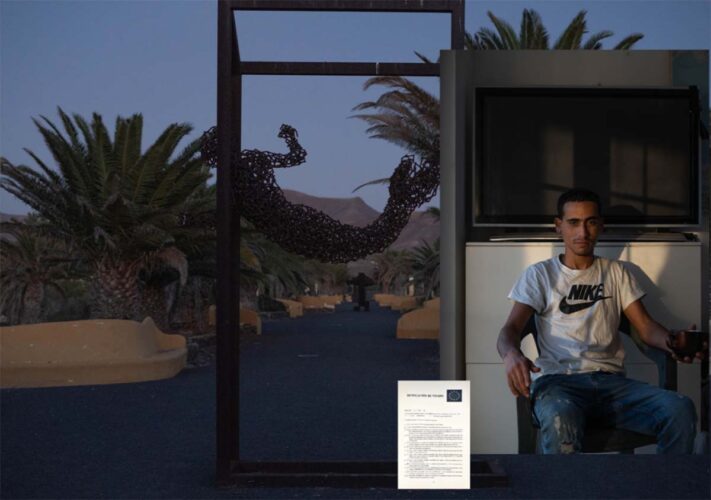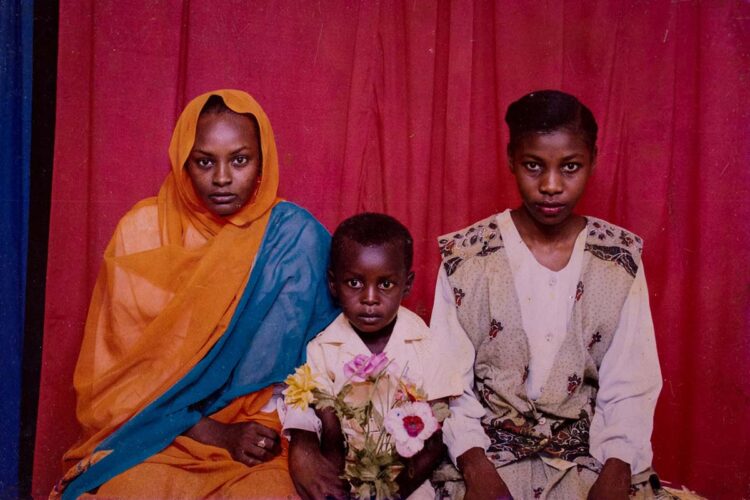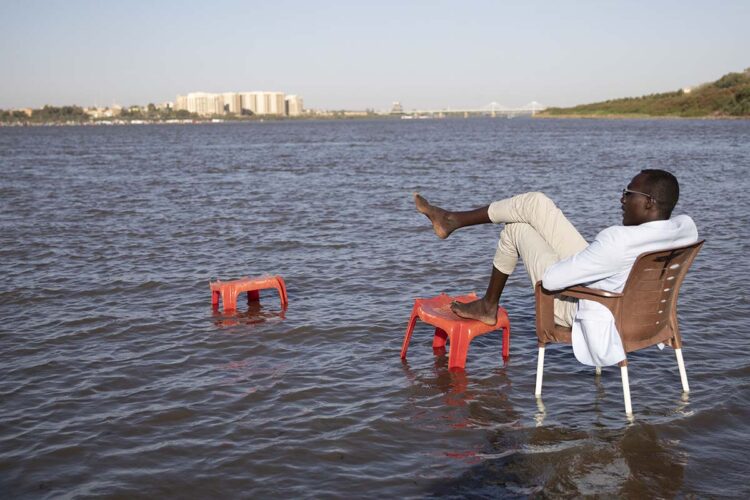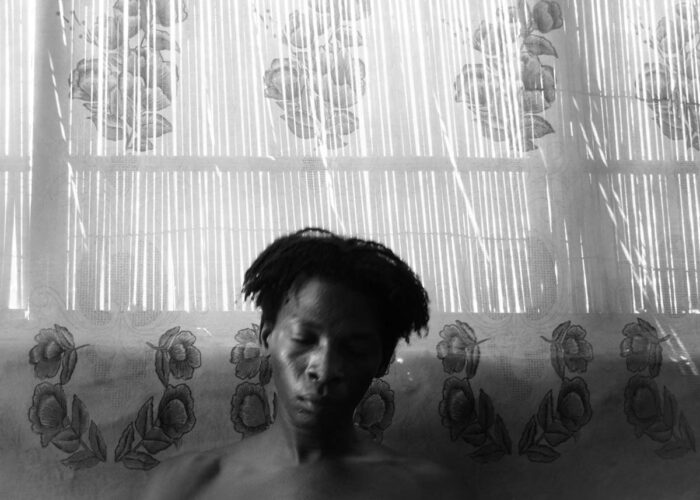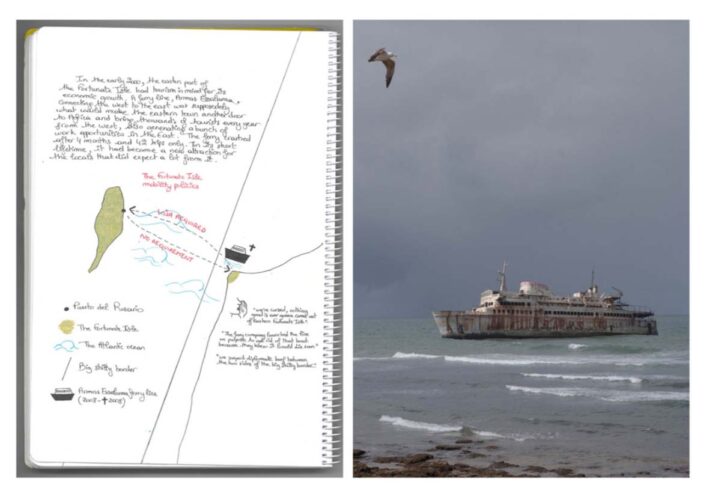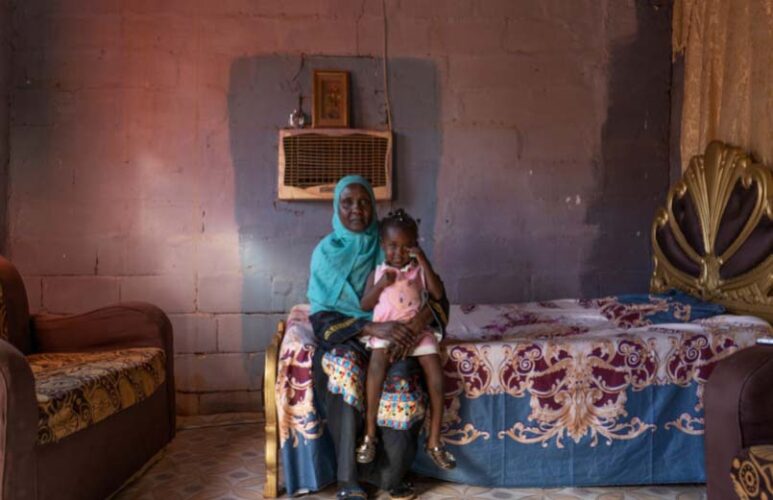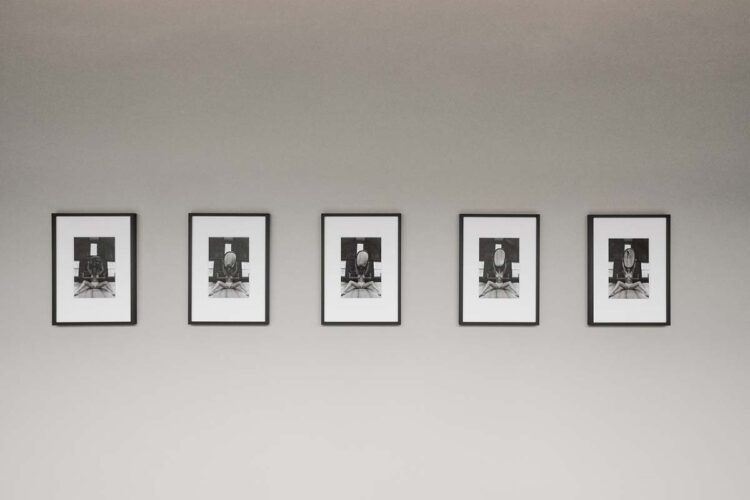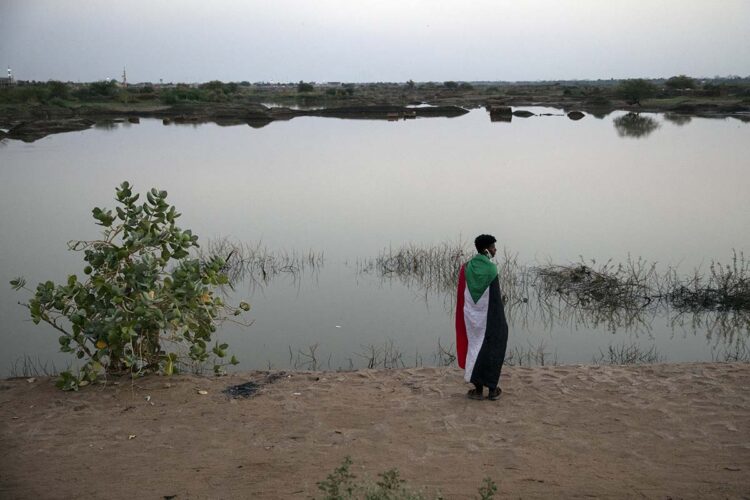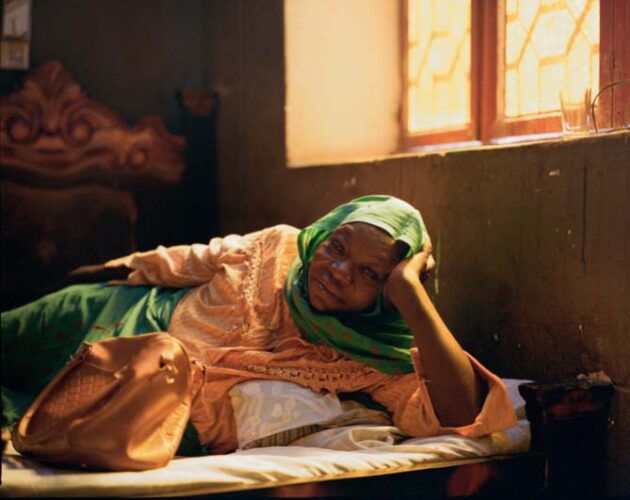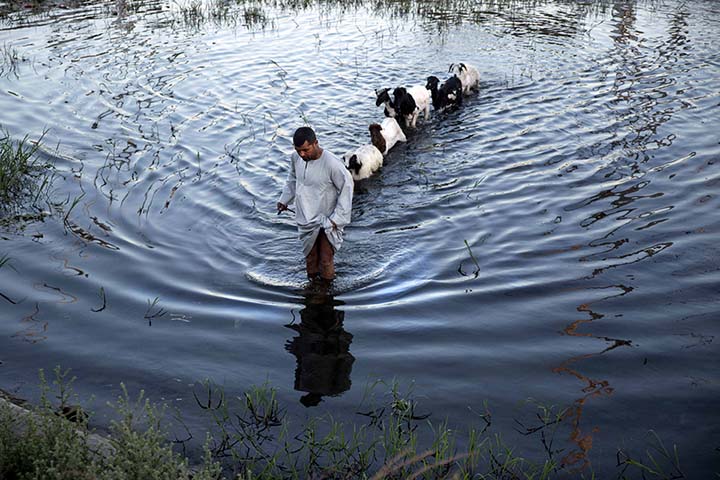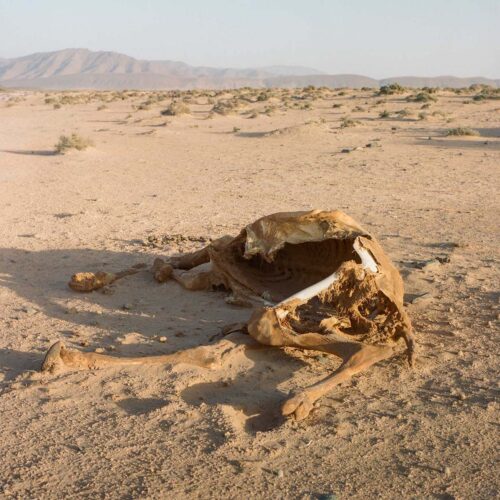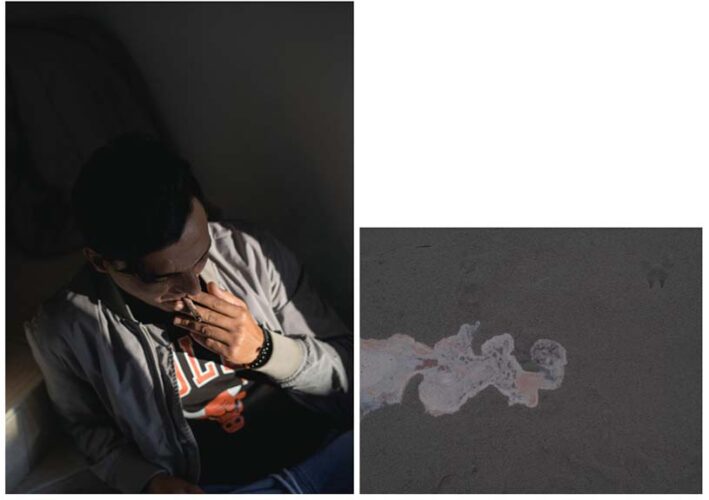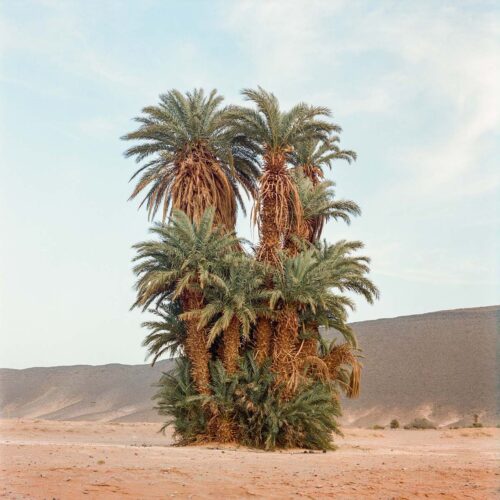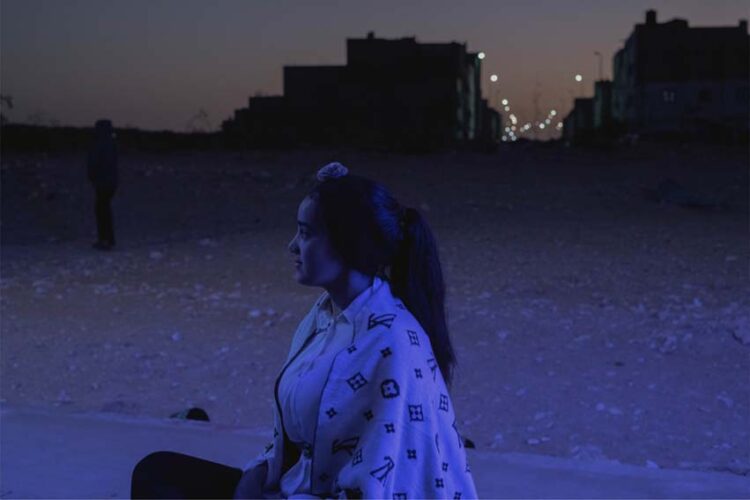EXPOSICIONES
Paisajes efímeros del sol
Roger Anis, M’hammed Kilito, Salih Basheer, Imane Djamil, Ebti Nabag, Yumna Al Arashi, Tanya Habjouqa, Abdallah Al Khatib, Leila Chaïbi
5 jun. — 15 sep. 2024
Casa Árabe
— Madrid
Comisariado por
Irene Díaz y Analía Iglesias
Organiza
Casa Árabe y PHotoESPAÑA
Horarios de la sede
Lunes a domingo
10:00–20:00
Sede
Casa Árabe
Alcalá, 62
Mapa
Paisajes efímeros del sol es el título de la muestra colectiva ganadora de la cuarta edición de la convocatoria NUR. En esta ocasión la muestra reúne los trabajos de Roger Anis, M’hammed Kilito, Salih Basheer, Imane Djamil, Ebti Nabag, Yumna Al Arashi, Tanya Habjouqa, Abdallah Al Khatib y Leila Chaïbi. Todos ellos artistas de África y Medio Oriente, nacidos en las décadas de los 80 y 90 del siglo XX. En sus fotografías y propuestas audiovisuales estos artistas evocan el movimiento perpetuo desde miradas que vertebran los capítulos de la exposición.
Naturaleza en fuga es una sección representada por la icónica (y a la vez amenazada) existencia del río Nilo y los oasis magrebíes.
En Éxodos se evocan las huidas apresuradas que provocan tanto la orfandad como las guerras (y las persecuciones en Sudán), o la incesante partida de migrantes desde la costa africana hacia las Islas Canarias.
La vida en círculos nos muestra a las mujeres que sostienen sus hogares con puestos de venta ambulantes (como las damas del té en Khartoum) o los ciudadanos de un campo de refugiados palestinos sitiado por conflictos ajenos que no encuentran salidas.
Por último, Mutaciones es una sección que se aproxima a las maneras en que lo tangible se encuentra con los mundos ancestrales, poéticos y místicos. Una mutación para perder los miedos, flexibilizar cuestiones relacionadas con el género y la identidad y, en definitiva, confiar en el gozo y en la vida.
Ephemeral Landscapes of the Sun is the title of the collective show that won the fourth edition of the NUR call for participation. This time, the show brings together works by Roger Anis, M’hammed Kilito, Salih Basheer, Imane Djamil, Ebti Nabag, Yumna Al Arashi, Tanya Habjouqa, Abdallah Al Khatib and Leila Chaïbi, all of them artists from Africa and the Middle East born in the 1980s and 1990s.
In their photographs and audiovisuals, these artists evoke perpetual motion from vantage points that coalesce around the four chapters of the exhibition. Fleeing Nature is a section represented by the iconic (and yet threatened) existence of the Nile River and the oases of the Maghreb. Exodus evokes the rushed fleeing caused by both orphanhood and wars (and persecution in Sudan), as well as the incessant waves of migrants setting sail from the African coast to the Canary Islands.
Life in Circles, in turn, shows women who support their households by peddling from street stalls (like tea ladies in Khartoum) and the Palestinian residents of a refugee camp beleaguered by others’ conflicts with no way out. Finally, Mutations is a section that examines the way the tangible encounters ancestral, poetic, mystical worlds, a mutation to make us shed our fears, to make gender and identity issues more flexible and ultimately to trust joy and life.


